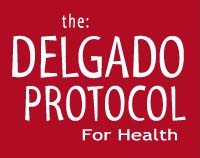Optimizing Your Vegan Diet for Health: Essential Nutrients You Need
Incorporating a plant-based or vegan diet into your lifestyle can bring about numerous health benefits. This nutrition choice is recognized as an effective solution for sustained weight loss, with scientific evidence supporting its positive impact on longevity and reduced mortality rates. Furthermore, adopting a vegan diet can lower the risk of various chronic diseases such as cardiovascular issues, diabetes, and high blood pressure, potentially decreasing the need for medications. However, it’s crucial to be mindful of potential nutrient deficiencies that poorly constructed vegan diets may pose.
Vitamin B12: A Critical Nutrient for Vegans
Why is B12 Important for Vegans?
Vitamin B12, predominantly found in meat and dairy, is crucial for vegans to supplement. B12 deficiency can lead to severe consequences, including morphological changes to blood cells and neurological problems. To ensure optimal health, vegans should check their B12 levels regularly and consider supplementation, favoring the more absorbable methylcobalamin over synthetic cyanocobalamin.

Vitamin D3: Supporting Vegan Bone Health
The Importance of Vitamin D3 for Vegans
Essential for bone health and overall well-being, Vitamin D3 plays a vital role in regulating insulin and supporting the cardiovascular system. Since fish and egg yolks are rich sources, vegans should be cautious of potential deficiencies. Opt for lichen-derived D3 supplements to meet your daily needs, aiming for 1000 IU daily while monitoring blood levels to prevent toxicity.
Omega-3s: Plant-Based Sources for Vegans
Maintaining Omega-3 Intake on a Vegan Diet
Vegans may experience lower omega-3 levels due to the absence of marine-sourced fats. Ensure a well-rounded vegan diet with omega-3-rich foods like flaxseeds, walnuts, chia seeds, and seaweed. Consider microalgae-oil supplements if needed, aiming for 1-2 grams daily to support growth, development, and cardiovascular health.
Iodine: A Crucial Element for Thyroid Function
Balancing Iodine Intake for Vegans
Vegans must manage iodine intake to prevent thyroid dysfunction. Seaweed and sea vegetables can provide sufficient iodine, but excessive or insufficient consumption may pose risks. Regular iodine level checks are recommended, and RAD iodine, derived from Atlantic kelp, can be a helpful supplement for optimal thyroid function.
Carnosine: Essential for Vegan Muscle and Brain Health
Carnosine and Its Importance for Vegans
Carnosine, vital for muscle, heart, and brain function, is typically found in meat. Vegans, especially those over 50, may benefit from supplementation to support overall health and combat age-related degeneration. Consider Stay Young tablets, a comprehensive formula containing carnosine and essential nutrients.
Additional Vegan Supplements to Consider
In addition to the highlighted nutrients, vegans may be prone to deficiencies in zinc, calcium, and iron. Regularly assess your diet and consider supplementation based on factors such as menstruation, blood loss, and absorption issues.
References:




